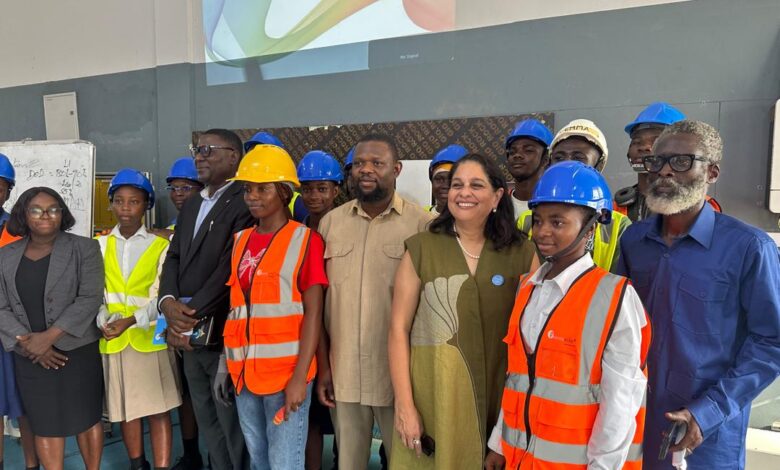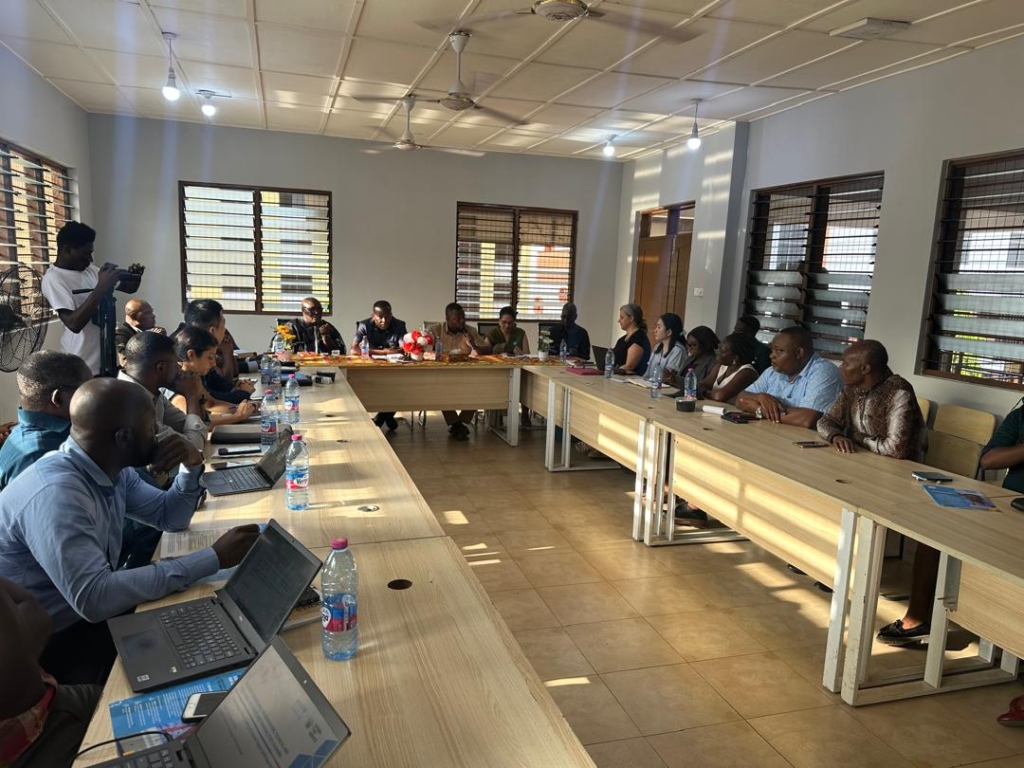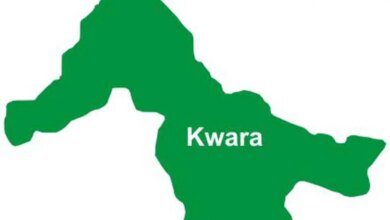CTVET, UNICEF and partners hold high-level roundtable to reimagine TVET in Ghana

A high-level roundtable discussion on “Reimagining Technical and Vocational Education and Training (TVET) in Ghana” has been held in Accra at the Applied Technology Institute, bringing together key government officials, parliamentarians, development partners, and sector stakeholders to deliberate on strategies for transforming Ghana’s TVET ecosystem.
The event, hosted by the Commission for Technical and Vocational Education and Training (CTVET) in collaboration with UNICEF Ghana, forms part of national efforts to strengthen the TVET sector through sustainable reforms, coordinated financing, and enhanced alignment between training and labour market demands.
The roundtable was graced by Dr. Pia Rebello Britto, UNICEF’s Global Director for Education and Adolescent Development, who led a high-level delegation to Ghana.
Dr. Britto commended the Government of Ghana for the remarkable progress made in transforming the TVET sector over the past few years.
She expressed UNICEF’s readiness to deepen its partnership with the Ministry of Education and CTVET to ensure that Ghana’s TVET system becomes more inclusive, future-ready, and aligned with global standards.
“I am truly impressed by the level of commitment and the results achieved in Ghana’s TVET sector. UNICEF remains committed to working closely with CTVET, the Ministry of Education, and all partners to build a system that empowers young people with the skills and opportunities they need to thrive,” Dr. Britto said.
Representing the Director General of CTVET, Mr. Anthony Kwame Zu, Deputy Director General of the Commission, reaffirmed CTVET’s mandate under Act 1023 to coordinate, regulate, and promote quality technical and vocational education across the country.
He emphasized that Ghana’s TVET transformation agenda is focused on developing a skilled workforce capable of meeting the needs of the 21st-century economy.
“The Government of Ghana, through CTVET, continues to pursue ambitious reforms such as the Competency-Based Training framework, establishment of Sector Skills Bodies, and the upcoming TVET Policy to create a coherent and demand-driven system. Partnerships like this are essential to sustaining and scaling our progress,” Mr. Zu noted.
Also present at the roundtable were Hon. Deh Fred Sebastian, Member of Parliament for Kpando and Board Chairman of the TVET Service, and Hon. Peter Nortsu-Kotoe, MP for Akatsi and Chairman of the Parliamentary Select Committee on Education.

Both parliamentarians commended CTVET and its partners for the gains made in harmonizing TVET delivery and reaffirmed Parliament’s commitment to supporting policies and funding mechanisms that promote skills development and youth employment.
The session featured contributions from development partners including Mastercard Foundation, represented by Ing. Peter Narh, Programme Partner for Education and Skills; GIZ, represented by Mrs. Patricia Boso, Component Manager for PACT for Skills; and the African Development Bank (AfDB), represented by Mr. Abeliwine Emmanuel.
Other participants included Madam Rejoice Dankwa, Director of TVET at the Ministry of Education; Mr. Samuel Amegayibor, Chairperson of the Construction Sector Skills Body and Executive Director of GREDA Ghana; and Ing. Emmanuel Kotey Ashie, Principal of the Applied Technology Institute.
The roundtable sought to build consensus among stakeholders on the next phase of Ghana’s TVET reforms, with discussions centred on sustainable financing, policy coherence, and system-level coordination.
A Development Partner Coordination Matrix was also presented, outlining opportunities for collaboration and synergy among key actors to avoid duplication and maximize impact.
In her closing reflections, Dr. Britto described Ghana’s TVET system as a potential model for scalable adolescent and youth skills development programming in Africa.
She praised the leadership of the Ministry of Education and CTVET for creating a coherent national framework that connects training, industry, and employment.
The event concluded with a renewed commitment from all participants to align their efforts in support of the Government’s vision for a modern, inclusive, and sustainable TVET ecosystem, one that empowers Ghanaian youth with the skills to compete and succeed in an evolving global economy.
DISCLAIMER: The Views, Comments, Opinions, Contributions and Statements made by Readers and Contributors on this platform do not necessarily represent the views or policy of Multimedia Group Limited.
DISCLAIMER: The Views, Comments, Opinions, Contributions and Statements made by Readers and Contributors on this platform do not necessarily represent the views or policy of Multimedia Group Limited.
Source link





